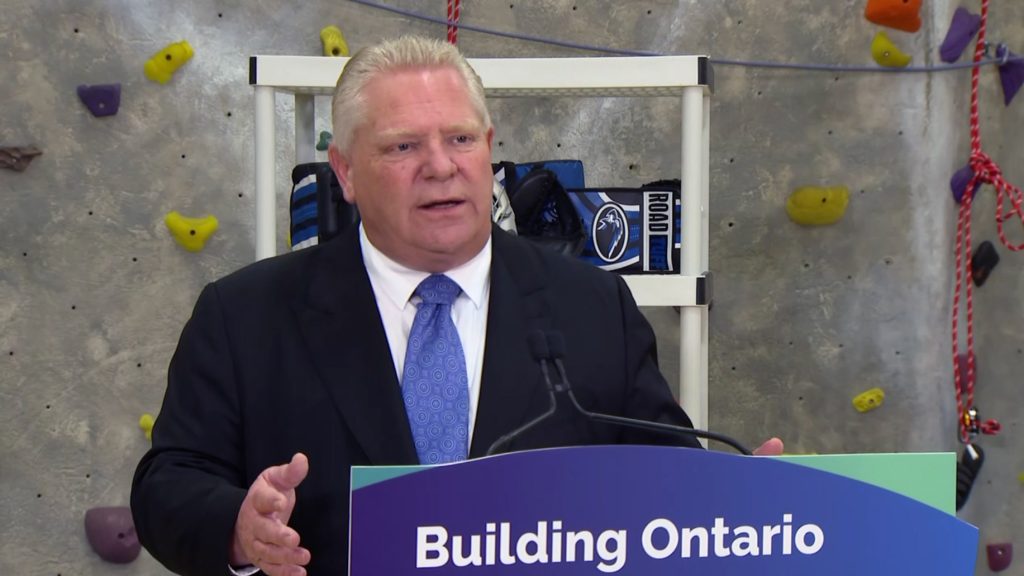From dream to reality: Montreal doctor becomes 1st Black female Interventional Cardiologist
Posted February 23, 2022 4:03 pm.
Last Updated February 23, 2022 4:25 pm.
Dr. Alexandra Bastiany has made history as the first Black woman to become an Interventional Cardiologist in Canada and she is hoping this recognition will inspire others who look like her to pursue their passions.
When Dr. Bastiany graduated in 2020 after almost 15 years of schooling, she was fulfilling a dream she’s had since she was a child. “I used to say as a kid, I wanted to be a doctor,” the 34-year-old explained.
Her mother, who is from Haiti, started studying to become a nurse when Dr. Bastiany was in elementary school and her dad was a chemist.
“I had a bunch of books, nursing books everywhere, anatomy books. So I was very early on introduced to that. We had a medical encyclopedia, it was a very scientific home,” added Dr. Bastiany. “It was a blessing that I had both parents there and that I was interested in what they were doing, they helped me a lot.”
And she always knew practicing cardiology was what her heart desired.
“I knew I liked the heart, the cardiovascular system. It’s always evolving. There are so many things happening. It’s such a simple organ but at the same time it’s so complicated,” said Dr. Bastiany. “And I knew that I would never be bored. I’m not at all so that was one of the many reasons that pushed me to go into cardiology.”
Born and raised in Montreal, Dr. Bastiany now works at Thunder Bay Regional Health Sciences Centre after completing medical school at the University of Montreal and her fellowship in Interventional Cardiology at the University of Alberta.
Dr. Bastiany is not only fighting for more people of colour to become interventional cardiologists, but also more women to join her field. “There are not a lot of women doing what I do. Women make up maybe 6 per cent of the pool of interventional cardiologists.”
She is also working with the Canadian Heart Health Alliance to advocate for better cardiovascular care for women.
Dr. Bastiany admits it was difficult going into a field that lacked representation.
“My bosses did not understand my reality as a Black student, as a Black person, period. My relationship with patients, my issues with certain patients, it would sometimes be really hard for them to understand, even realize, that there were some microaggressions happening.”
She said she did come across patients who would ask for a senior cardiologist. “I know why, either because I was a woman, or I was black.”
“[Patient’s] words sometimes don’t reflect what they’re thinking. They’re stressed, they’re sick, they’re in pain so I try not to take it personally,” explained Dr. Bastiany. “But I realized with time, it’s time for change and by myself, I can’t do anything but if I have my nurses, I have my staff and people who helped me put my foot down and also stand by me when there’s problematic behavior and that is how the world’s going to change.”
While the field is dominated by white men, Dr. Bastiany said they are working to become more diverse. “I’m really proud of my profession that they’re trying to make it better and I’m actually part of the committee with the Canadian Cardiology Society. Last year, we started an Equity, Diversity and Inclusion committee working hard to raise awareness about this issue and also find solutions.”
Dr. Bastiany credits her family and support system of allies who she says helped her and protected her.
“I made it and I want to highlight that I had amazing mentors, and not all of them are Black. Most of them are white, male.”
She is working on embracing her role as a mentor and someone to look up to for young girls as well.
“I get a lot of messages from elementary school kids and high school kids. Every time I get an email or a DM, I try my best to answer and to help them, tell them, ‘Hey you can do it’ because just to hear that from someone who looks like you and who made it, for me, makes a difference,” said Dr. Bastiany.
“I hate to call myself a mentor or trailblazer and all this kind of stuff, even though I know that’s what it is, but I just want to help build a better future, not just for people of color, but also for women and not just in cardiology and medicine, but science in general.”
Dr. Bastiany said she was honoured to be mentioned in Prime Minister Justin Trudeau’s statement on Black History Month, something she didn’t know about until CityNews informed her.
“Black Canadians and their communities have a long history of being trailblazers and change makers. Among them is Dr. Alexandra Bastiany, an advocate for diversity in medicine who recently became Canada’s first Black woman interventional cardiologist,” read her mention in Trudeau’s statement.
She said it takes a lot for her to acknowledge her own accomplishments, but said she really does feel proud
“I am definitely proud and happy, I’m happy for everybody else who looks like me. Let’s just do something more and make sure that everybody who looks like me has an equal chance to become what they want to become because currently, that’s not the case.”
Dr. Bastiany added while she understands the importance of Black history, she believes it’s time to focus and invest in a future for Black people.
“History is very important, it’s good to know to go forward, but we should focus on what we can do to make the future of Black people in this country better.”










